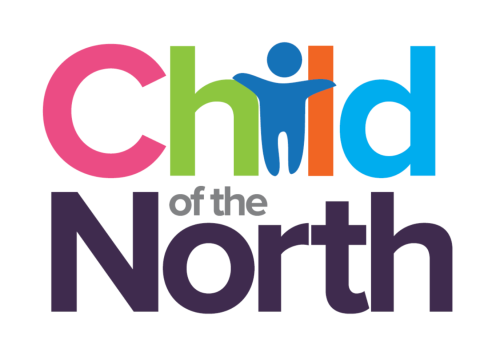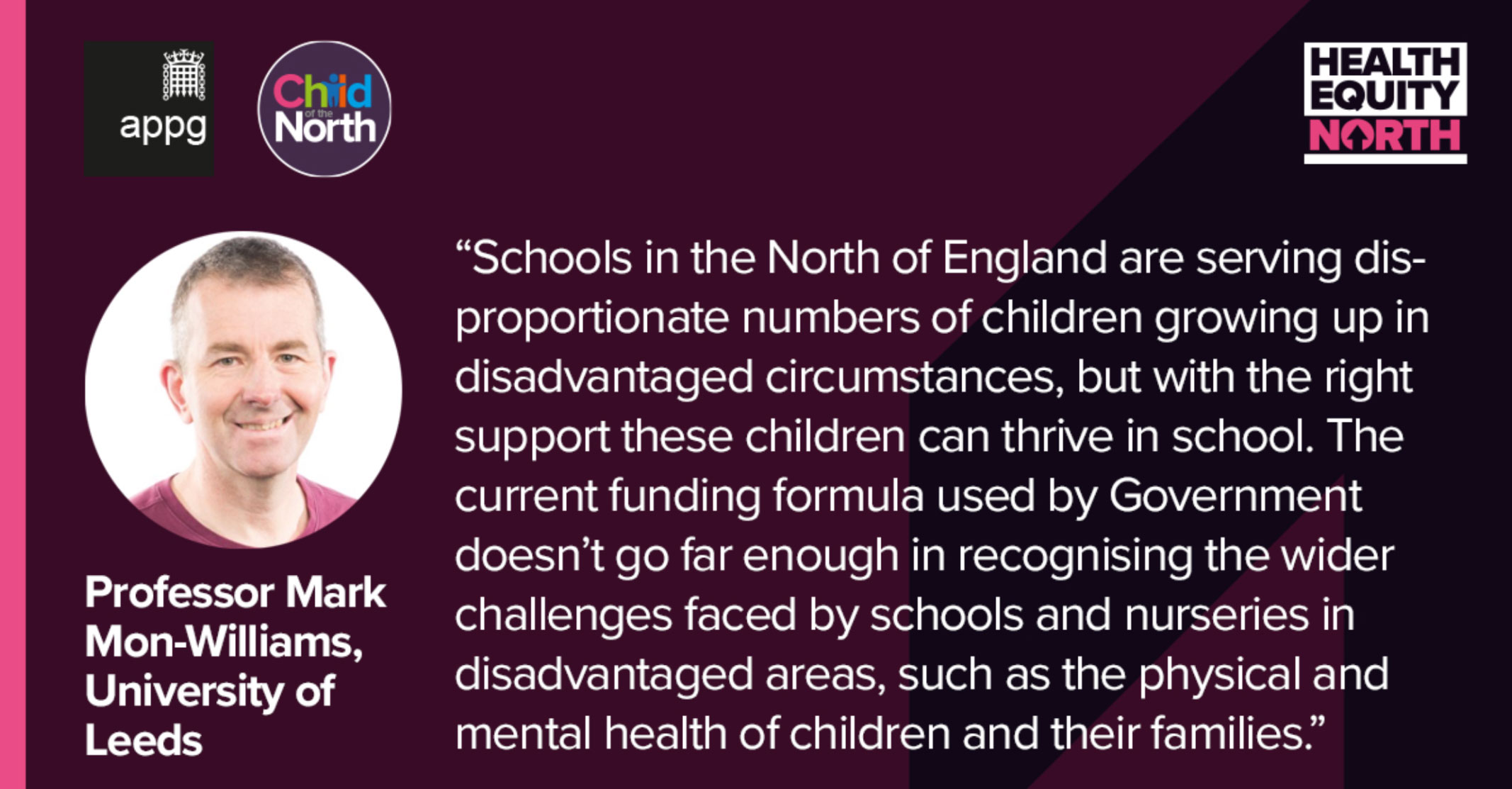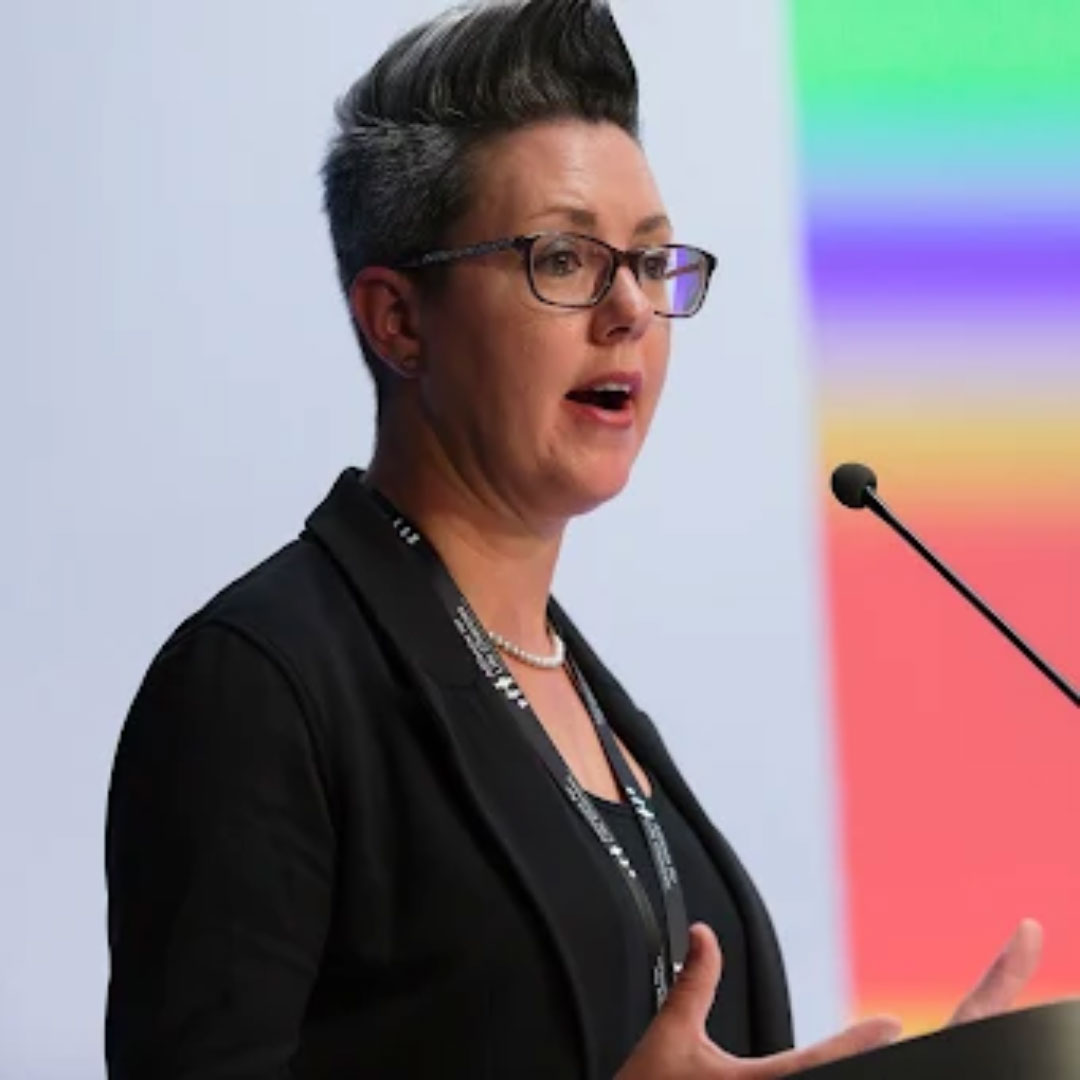News
Inequalities are stark according to new report, but it's not all "grim up North"

Here in Bradford, we are leading the way in demonstrating the innovative partnerships and approaches to tackling education and health inequalities highlighted in this new report. But how can we encourage more areas in Northern England to follow suit?
The Child of the North: Addressing Education and Health Inequity report highlights a number of stark inequalities which show that children in the North of England are disproportionately disadvantaged compared to those in the South. This is unfair and unjust, to the generation who have dealt with the Covid-19 pandemic, patchy educational catch up, the cost of living crisis affecting their family finances and living standards and now the so called ‘new normal’ as they adjust to life after the Covid-19 pandemic.
New evidence published by academics from the Child of the North group (a partnership between Health Equity North and N8 Research) on behalf of the Child of the North All-Party Parliamentary Group (APPG), has revealed the true nature of the North/South divide. For example:
-
On average pupils in London received 9.7% more funding than those in the North.
-
Children in the North have higher school absences, including health and mental health absences, and educational performance is poorer.
-
Children born into the poorest fifth of families in the UK are almost 13 times more likely to experience poor health and educational outcomes by the age of 17.
This report has prompted rallying calls for immediate action to address the imbalance from northern MPs and academics, who have set out a suite of recommendations to help level the funding playing field.
Further findings from the report include:
-
NFF funding per pupil increased by 4 percentage points less in real terms in the most-deprived primary schools (0.7%) compared to the least-deprived ones (4.8%). between 2017–18 and 2022–23, creating a lag in the reduction of the inequality gap.
-
School absence rates were greater in the North East and Yorkshire and The Humber, compared to Outer London and Inner London in the 2022/23 autumn term.
-
Children were also more likely to be persistently absent in the North East (25.6%) and Yorkshire and The Humber (24.5%) compared to Outer London (23.1%) and Inner London (23.8%).
-
Students in London achieve a third of a grade higher, on average, than students in the North.
-
Children from the lowest income households are five times more likely to experience poor academic achievement.
-
Removing socio-economic inequality in early childhood would reduce the number of children experiencing multiple adversities by more than 80%.
-
Children who fail to reach a good level of development on the Early Years Foundation Stage Profile are nine times more likely to perform below expected levels in reading and maths at Key Stage 1.
-
They are also three times more likely to become a persistent absentee, and three times more likely to become NEET (Not in Education, Employment or Training) at 16-18 years of age.

In light of this evidence, the report suggests practical steps that should be taken both at a local level and makes clear recommendations on the actions that central Government should take to improve outcomes for children and young people growing up in the UK.
The recommendations include:
-
Allocate additional funding to secondary and post-16 providers to support young people from the most disadvantaged areas over 2025-30.
-
Implement the National Audit Office’s (NAO) recommendation that the Department for Education: “Evaluate the impact of the National Funding Formula and minimum funding levels over time and use that information to inform whether further action is needed to meet its objectives.” Funding should be commensurate to the level of need to reduce long standing inequalities in attainment.
-
Develop options immediately to adjust the NFF criteria from 2025 to include the “health burden” borne by schools (with funding settlements considered holistically across the Departments for Education, and Health and Social Care).
-
Create formal partnerships at local authority area level, that enable schools, health services, police, local authorities, voluntary services, regional universities, faith leaders, and businesses to drive “whole-system” approaches to improving social mobility, health, and education through schools and nurseries.
-
Establish “Act Locally” convening partnerships at place level (i.e., ward or similar) that allow schools to work with their communities, children’s service professionals, and businesses to influence and drive a more effective, efficient, and responsive offer from local services.
-
Allocate at least £1m per year to allow meaningful action at scale through formal partnerships between local authorities and the Government. Robust monitoring and challenge should be overseen by the Government to ensure value for money and learning.
-
Local universities and authorities should work together to create a positive and inclusive network of R&D departments across the North of England and more widely.
-
Create connected datasets in ways that can support coordinated public service delivery and are enhanced and disseminated to other partners such as those across the N8 Research Partnership and NHSA research-intensive universities, and NHS hospital trusts in the North of England.
-
Adopt the programmes outlined in this report to support children and young people’s health and learning needs.
-
Use schools as “hubs” for delivering health services, especially within disadvantaged communities; providing support so they can help families meet the health needs of their children and young people (e.g., through funding family support workers).
-
Support expansion of the #BeeWell programme to all areas so every school can understand and respond to the mental ill-health experienced by their students.
-
Tackle the digital divide so all children have equitable access to the tools they need to learn and thrive in the increasingly digital world.
-
Act early to address problems before children enter school and avoid the long-term costs (e.g., NEET) associated with a lack of school readiness. Target investment to improve access to high-quality training for early years educators and health visitors to improve staff retention and uptake.
In addition, there are also insights from young people and school leaders who give a first-hand perspective on how the issues highlighted in the report affect them.
The report also illustrates how public services in the North of England have come together to create innovative approaches that bring health and education together to deal with the poor outcomes faced by children and young people.
It includes examples of regional evidence-based collaborative initiatives that can provide a blueprint for transformational change nationally. Here in Bradford, we are proud that both our Education Alliance for Life Chances (EALC) partnership (a formal partnership formed out of the legacy of the Bradford Opportunity Area programme to propel whole system, place based approaches to improving social mobility) and work through ‘Act Locally’ (where schools are leading data driven placed based partnerships) feature as a concrete examples of proactive collaboration and action at both local authority and place-based levels.
We strongly encourage other Northern areas to follow our lead by creating their own local ‘EALC-style partnerships’ that aim to tackle both health and education inequalities, but we understand the challenges that may hold you back – the permissions, mandate and lack of funding.
We are happy to share our lessons learned from our experience here in Bradford as we want all Children in Northern England to have the same life chances and social mobility as those children who live elsewhere in the Country. So, let’s stand shoulder to shoulder to make the change that’s needed.
Flip to read the full report
Keep up to date with the Education Alliance for Life Chances
 |
Kathryn Loftus Formerly Programme Director for the Bradford Opportunity Area, Kathryn was born and educated in Bradford and has held a number of Local Authority management roles across Sheffield, Kirklees and Bradford. These roles included policy development, service delivery, and programme management, and in the last 10 years oversaw local authority organisational re-design, transformational service change and Children's Services Improvement. |
